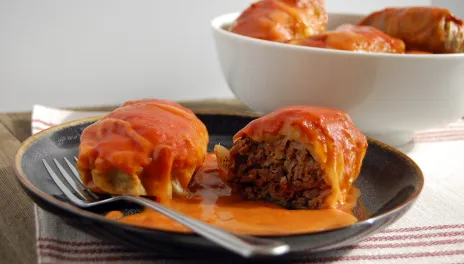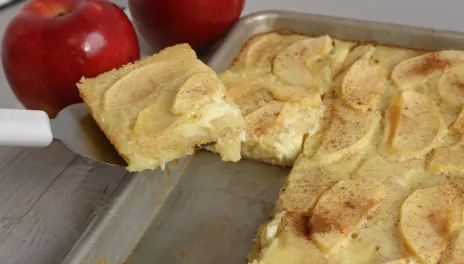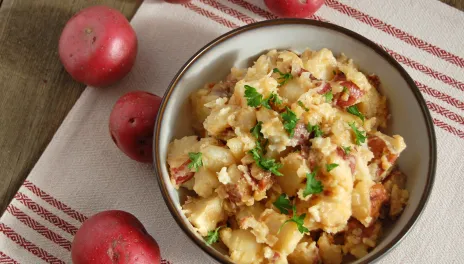Halupsi (Cabbage Rolls)
A recipe traditionally from Eastern Europe.
Ingredients
- 1 head cabbage
- 1 pound ground beef, 93% lean
- ½ small onion finely chopped
- ½ cup rice (parboiled)
- ½ cup carrots, shredded
- ½ cup green pepper, chopped
- ¼ teaspoon salt
- ¼ teaspoon pepper
- 1 can tomato soup
- 1 can tomato sauce
- ½ cup sour cream
- 1 teaspoon vinegar
- ½ cup water
Directions
Remove the cabbage core. Place cabbage head into a deep pot and cover with hot water. Steam until the leaves are all softened. Drain the cabbage. Separate cabbage leaves and set aside. Mix meat, onion, rice, carrot, green pepper, salt and pepper in a bowl. Roll a spoonful of the meat and rice mixture into a cabbage leaf and place in a pan. Makes about seven rolls.
In a separate bowl, mix together tomato soup, tomato sauce, sour cream and vinegar. Pour mixture over cabbage rolls. Bake at 350 degrees for two hours. About half way through cooking, pour ½ cup of water over the rolls to keep them from drying out. Bake until rice is soft and the mixture reaches 160 degrees. Spoon sauce from the bottom of the pan over the top of each roll just before serving.
Source: From Thy Bounty Cookbook, Germans from Russian Heritage Collection. North Dakota State University Libraries.




